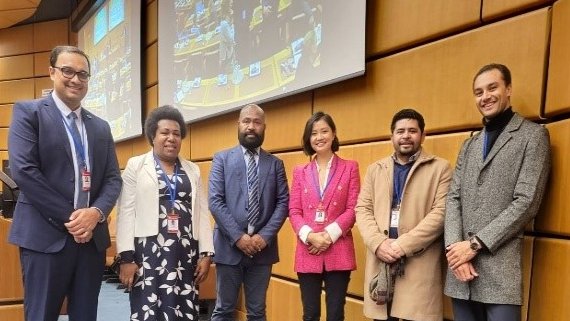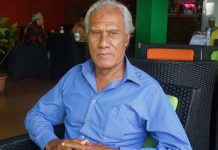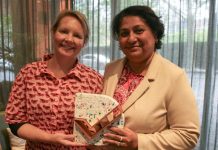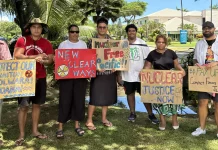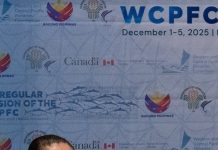The Pacific region was well represented at the UNFCCC 5th Technical Expert Dialogues (TED) Under the Ad Hoc Work Program on the New Collective Quantified Goal (NCQG) held in Vienna, Austria from 8 – 10 March 2023.
The meeting included representatives from Cook Islands, Papua New Guinea, Samoa, Solomon Islands and the Pacific Islands Forum Secretariat with participation supported by the UNFCCC.
At COP26, Parties had agreed to an ad hoc work programme involving the engagement of technical experts on climate finance from across the world working together to establish a new collective quantified goal to come into force after 2025. This goal will go beyond the US$100 billion climate finance goal that developed countries have so far failed to achieve under the Paris Agreement. The meeting was an opportunity for experts to reflect on the scope, timeframe and quantum of the NCQG, share lessons learnt and ensure the critical voices of the Pacific and Small Island Developing States (SIDS) are factored into the NCQG work programme which will ideally address the shortfalls in the current global climate financing infrastructure.
The Secretariat was represented by Director for Programmes and Initiatives, Zarak Khan. “The Pacific remains one of the most vulnerable regions in the world where climate change and disasters are a lived reality creating significant pressures on national budgets and public financial management systems,” he said, “This was demonstrated recently with two cyclones and an earthquake affecting Vanuatu within the span of a few days causing damages in the hundreds of millions of dollars.”
Director Khan also reiterated the disappointment of the Pacific region, on the failure of developed countries to meet their obligations under the Paris Agreement. “There is an urgent need to reshape and reform the international climate financing architecture to engender greater political will and honouring of commitments from the largest emitters in the world to address the impact of their actions on the Pacific region and the global south,” he said, “There must be strong mechanisms in the NCQG to improve access and enhance accountability and transparency. Funding must also be additional, significantly scaled up and predictable to address the climate finance needs of our members with more effective measures for addressing inequities and the special circumstances of developing and least developed island states.”
Acting General Manager at the Climate Change and Development Authority in Papua New Guinea Debra Singi stated that “climate finance helps countries reduce greenhouse gas emissions and it also helps communities adapt to climate change impacts. The intent of the new collective quantified goal is for developed nations to provide developing countries with the necessary funding to address adaptation and mitigation gaps. While so much numbers have been reported on climate finance given to developing countries, Pacific nations do not have direct access and that remains a challenge. Access to finance is always a challenge to the Pacific region and so attendance here is to ensure we speak on a goal that is structured in addressing capacity building that will enable access to climate finance”
It is anticipated that there will be further discussions and opportunities to shape the NCQG process at the UNFCCC Bonn Climate Change Conference in June 2023 and during COP28 hosted by the Government of the UAE in December 2023.
PIFS continues to support the Pacific region in the climate finance negotiations on a NCQG through the One CROP process and with support from UNFCCC.
SOURCE: PIFS/PACNEWS






